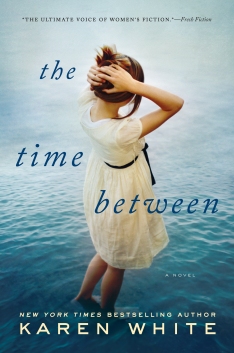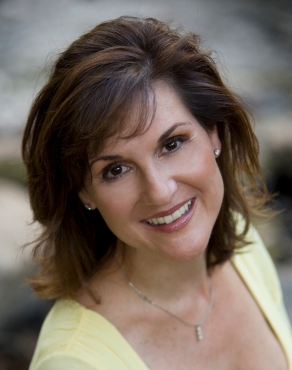My children have just returned to college after their month-long holiday breaks. It was good having them home again, but it’s also nice to have my clean and quiet house back. And not have to dodge two extra cars when pulling my car out of the garage. Now that I’m back into my routine, I’m hoping to also rebuild a little of my self-esteem. There’s something about living with teenagers and twenty-somethings that make me feel as old and creaky as the houses I write about.
Just a few things that were pointed out to me this past month: despite having the latest and new-fangled smart phones, nobody actually calls anybody on them except for old people (ie. my husband and me)—they’re just for texting and submitting photos to Instagram; nobody sends real (ie. paper) invitations to anything anymore except (maybe) a wedding; the word “taping” (as in “I’m taping Downton Abbey so I can watch it on Monday) is taboo because it makes people think you still have a VCR; and, lastly, three of my texts have apparently been submitted to whenparentstext.com. It’s a long and steep road, but I’m hoping I’ll have my self-esteem back in a few months. Just in time for them to be back home for spring break.
I’m sure I did the same thing to my parents. But my parents have always seemed so old. I didn’t think they had anything to teach me until I was in my twenties and had my own children. It’s amazing how much smarter your parents become when you become one yourself. As a teenager, however, I thought my parents weren’t much smarter than a third grader and was convinced there was nothing I could ever learn from them. But I did—and in the most unexpected and unusual ways.
Because of my father’s job with a major oil corporation, we lived all over the world when I was growing up so I never had a home town. Both of my parents were born and raised in Mississippi and I looked forward to my summer breaks when I could spend time with my beloved maternal grandmother along with about 100 cousins and my mother’s four sisters. I’d listen to my mother and aunts and grandmother talking for hours, seeing a new side of my mother I didn’t get to see any other time. Her accent would deepen, making it seem more like those of my aunts who’d never left Mississippi. It is these visits to the South that made me fall in love with the region, to make me want to recreate those Halcyon summer days of my childhood in my grandmother’s kitchen. And when I write about my strong Southern heroines, it is those women’s voices I attempt to recreate within the pages of my novels.
My mother wasn’t a big reader, except for her ladies’ magazines like Good Housekeeping (which I still subscribe to!). My dad was a voracious reader, but only of nonfiction. I remember him reading Winston Churhill’s memoirs to my three brothers and me at bedtime. I was enthralled (I guess that’s where I get my love of history from) but my brothers fell asleep. My father was also in love with true ghosts stories and unsolved mysteries. He also read those to us at bedtime (a severe lapse of judgment). I spent many sleepless nights wondering what was going to come out of the darkened closet, or be standing behind me when I looked in a mirror.
I suppose it’s no surprise that after writing four Southern women’s fiction books (mostly about sisters or only children), I came up with my Tradd Street series idea. I called them my Sixth Sense meets National Treasure meets Moonlighting (or Castle, depending on the age of the person I’m speaking to). They’re Southern women’s fiction with a twist—the heroine sees dead people. There’s even a scene in one of the books where the heroine looks in a mirror and somebody’s standing behind her. I never thought I’d thank my dad for all those sleepless nights.
My parents are in their eighties now, old age by anybody’s definition. My dad still likes to read, and his favorite books are my Tradd Street series. He’s been my most impatient reader, begging me to let him read the unfinished manuscript as I wrote it. They’re in a retirement village and when we visited in December many of the people there commented on how much I look like my mother. I cringed for old time’s sake—just as my daughter does when people say that to her about looking like me. Maybe that’s genetic, too. My mother has Alzheimer’s and it’s too late for me to thank her for giving me her sisters, for putting these inspirational women into my life. For nurturing a budding writer.
The events planner at the retirement community has invited me to come speak to the residents about writing and my dad is so excited. Maybe I’ll read some of the true ghosts stories to the group for old times sake, but I know my dad has a hard enough time sleeping already. Maybe it’s time I apologize for making him feel old long before he actually was. And to thank him for giving me the love of stories and mysteries and, yes, even ghosts. It’s amazing what we can learn from our parents even while we’re too busy telling ourselves that they don’t know anything.
Right now, I’m having trouble syncing my data on my desktop computer with my new iPad. I’m wondering if I should spend three weeks trying to figure it out myself, or call my son and ask him to explain how it works. Yeah. I think I’ll wait.



 When I was a little girl, my father’s job has us moving all over the world about every two years. I loved the experience of meeting new people and making a new house a home. I actually thrived on it. But what I didn’t like was leaving behind the friends I’d made. Luckily, back then things called “hand-written letters”, “postage stamps,” and “mailboxes” existed, which allowed me to keep in constant contact with a growing number of friends. Sort of an old-fashioned Facebook, but more personal.
When I was a little girl, my father’s job has us moving all over the world about every two years. I loved the experience of meeting new people and making a new house a home. I actually thrived on it. But what I didn’t like was leaving behind the friends I’d made. Luckily, back then things called “hand-written letters”, “postage stamps,” and “mailboxes” existed, which allowed me to keep in constant contact with a growing number of friends. Sort of an old-fashioned Facebook, but more personal.